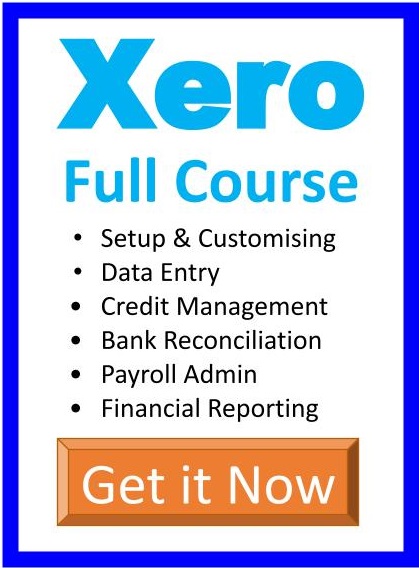Description
Originate Concepts
Originating and developing concepts is the foundation subject because whether you run your own small to medium business, or whether you’re working for somebody else, being in business means always developing concepts or products. Little in business ever stays still or remains completely static; particularly in this technologically-driven world.
Examples of originating and developing concepts and products in business include:
- Coming up with an advertising or marketing campaign
- Devising a staff development program
- Formulating a media or IT plan
- Organising an event or exhibit
All of these tasks require creative thinking; usually involving some base knowledge and then building on it with original and relevant ideas depending on your business type.
What drives you?
Our Business StartUp Online Training Course begins with this subject because ideas, thoughts and dreams are what drive people and their businesses. They are the one constant we can all participate in every day. Discovering what we’re passionate about and what we’re good at is a huge step forward when starting a business for ourselves.
Sure, for many people who start a business, one of their prime motivators might be the ability to achieve a work-life balance and be their own boss. But in the business itself, it’s important to figure out what drives you because being a successful small business person takes a lot of energy!
Customer needs and product or service improvements
So what to do when beginning your business? A good first step to starting your own small to medium business, or running someone else’s business, is to research existing information. To this end, there are various methodologies you can use. For instance, you could identify gaps in the current range of products, programs, processes or services that inform the new concept. You might be thinking about the prospects of future commercialisation of your product or concept. You will assess what others in the marketplace are doing and identify some major factors likely to impact on your idea or concept.
Ideas are designed to improve your product or service and increase the value to your customers.
Concept development is almost always a collaborative process. It is likely you will need to liaise with, and seek input and feedback from others throughout the process; reaching agreement on aspects to ensure you’re meeting the needs of the market. Your concepts and ideas may need to be experimented with, challenged and tested. Social, ethical and environmental factors will also play a part.
Mark Darling, one of our key course contributors, believes:
The most important word in small business is “improvise”.
Businesses are faced with challenges on a daily basis and each new issue, each new challenge, provides astute and persistent business owners with an opportunity to create a better product, strengthen their business and give customers another reason to be your customer. We help you learn how to be astute and persistent.
Research and do it
Our Business StartUp Online Training Course takes you through originating and developing concepts to fruition. Learn how to:
- Become familiar with various creative thinking techniques whilst also being mindful of practical considerations.
- Express innovation and difference.
- Develop the most appropriate format for presenting proposed concepts and take them to operational level.
- Take your concepts to the point where they can be developed into detailed implementation specifications which can then be presented to various parties for approval, funding or endorsement.
- Develop concepts in a way befitting senior management.
Startup Course (Business Owner Interviews)
Educational Videos
Watch in-depth and personal interviews with successful business owners to discover how entrepreneurs use creative thinking to start their business, develop new products and new ways of presenting, marketing and selling their products and services.
This subject will include in-depth interviews with our course contributors and other specialist contributors. These people are highly-driven and successful business owners willing to share the tough and vital secrets with you that they have learned along the way. Don’t waste time and money reinventing the wheel.
The Career Academy pathway to Nationally accredited training
After completing the pre-accredited online short course students can either go into business for themselves or explore options to complete a nationally accredited qualification and receive a Nationally recognised certificate.
Elements and Performance Criteria
|
ELEMENT |
PERFORMANCE CRITERIA |
|
Elements describe the essential outcomes. |
Performance criteria describe the performance needed to demonstrate achievement of the element. |
|
1 Evaluate and explore needs and opportunities |
1.1 Research and evaluate existing information that informs new concept development 1.2 Where appropriate, identify and use gaps in current range of products, programs, processes or services as the catalyst for generating new ideas or concepts 1.3 Expand the potential of new ideas through exploration of opportunities beyond the obvious 1.4 Identify factors that could have an impact on ideas or concepts to be developed, including potential for commercialisation 1.5 Determine whether other players are filling identified gaps or investigating similar opportunities 1.6 Develop preliminary ideas on innovative and different ways to address needs and opportunities 1.7 In consultation with relevant stakeholders, agree on broad parameters for developing ideas and concepts to meet market requirements |
|
2 Develop a range of creative approaches |
2.1 Use a range of creative thinking techniques to generate innovative and creative concepts to address identified needs 2.2 Challenge, test and experiment with different concepts and ideas as part of a collaborative process 2.3 Evaluate concepts in terms of their suitability for the target audience or purpose, their feasibility and their commercial potential 2.4 Take account of social, ethical and environmental issues as concepts and ideas are generated and discussed 2.5 Identify resources required to achieve desired creative and innovative outcomes 2.6 Evaluate the effectiveness of different strategies for achieving desired outcomes 2.7 Select concepts or approaches that achieve required outcomes in an innovative and feasible way 2.8 Present proposed concepts or approaches in an appropriate format |
|
3 Refine concepts |
3.1 Ensure concept development process is open to ongoing refinement and testing 3.2 Seek input and feedback on concepts from relevant stakeholders 3.3 Seek specialist advice on creative and technical aspects of proposals as required 3.4 Compare concepts with best practice examples of similar products, programs, processes or services 3.5 Use a range of creative and practical criteria to determine the advantages and disadvantages of different concepts 3.6 Evaluate constraints on the realisation of concepts or ideas 3.7 Refine proposals based on analysis and feedback |
|
4 Develop concepts to an operational level |
4.1 Use refined concepts as the basis for developing detailed implementation specifications 4.2 Present specifications to relevant parties for approval, funding or endorsement 4.3 Reflect on methodology used to generate concepts and ideas and note ways of improving this in the future |
These are the requirements of the BSBCRT501 – Originate and develop concepts accredited training package























